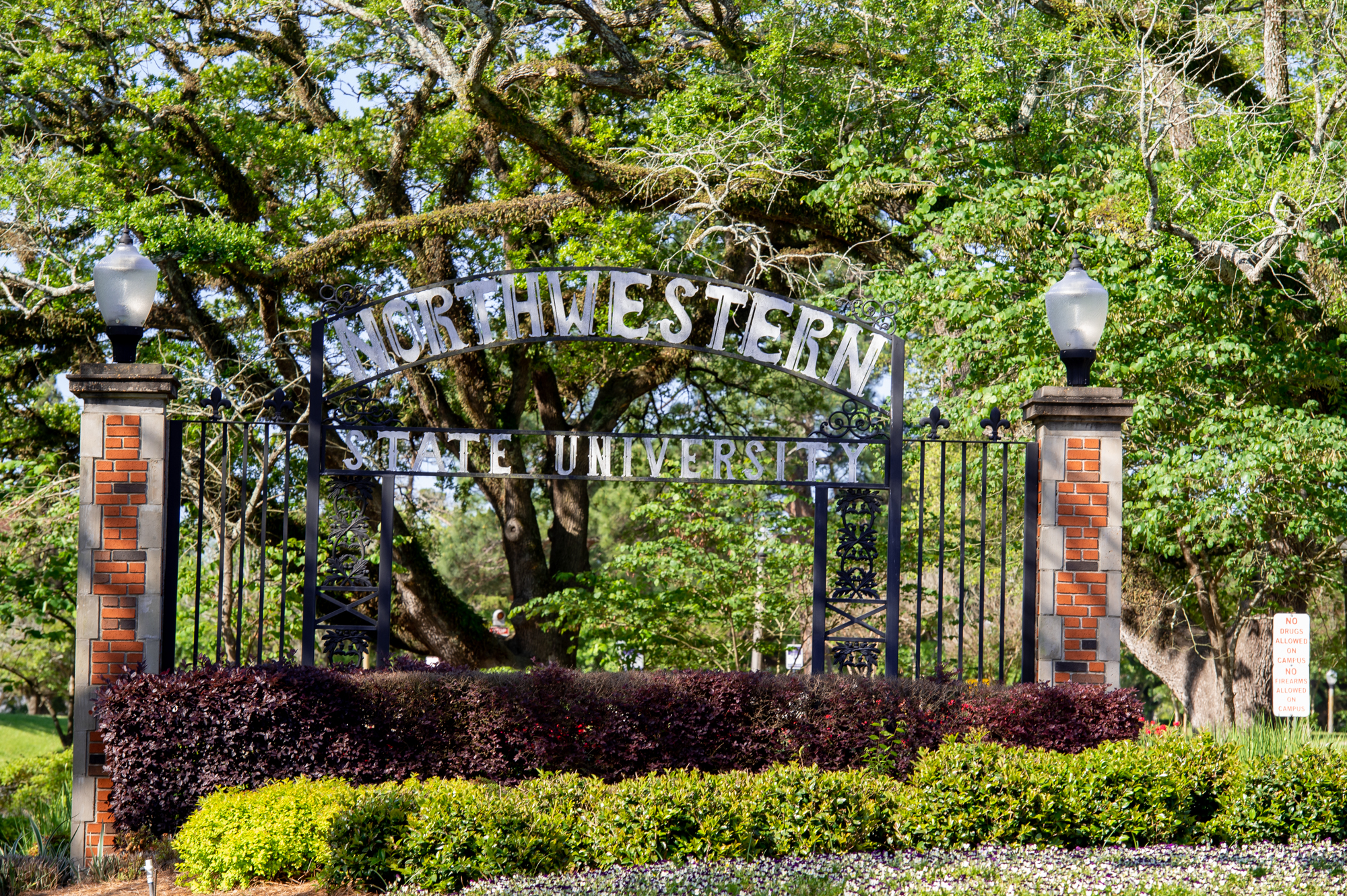NATCHITOCHES – Fall to spring retention rates for first-time freshman rose to 87.8 percent at Northwestern State University this semester with some departments reporting as high as 90 percent retention of freshmen from Fall 2023 to Spring 2024.
NSU President Dr. Marcus Jones said the increase is a result of a better understanding of incoming students and efforts to help them overcome academic and financial barriers. Over the past two years, NSU faculty, advisors and student-service personnel made intentional efforts to address retention through intervention, engagement and mentoring.
“This positive data demonstrates the hard work and dedication NSU’s faculty and staff in Student Affairs, Academic Affairs and all positions that support student success,” said NSU President Dr. Marcus Jones.
“We have been able to consistently provide great scholarship packages to entering freshmen, while keeping our cost low, as the second most affordable institution in the state,” said Vanner Erikson, director of Enrollment Management. “We’re looking at further ways to lower the cost even more.”
There has also been an uptick in first-time freshman applications, a sign that enrollment data is moving in the right direction. There are 8,035 students enrolled for Spring 2024. This past academic year, the university’s persistence rate — the number of students who stayed enrolled and graduated — reached its highest level since 2014, indicating a post-COVID bounce-back.
Academic initiatives put in place are proving effective, Jones said. Dr. Francene Lemoine, dean of the College of Arts and Sciences, spearheaded the creation of the FLAME (Faculty Led Assistance in My Education) program, in which faculty offer supplemental instruction to help students understand material and complete assignments. The Demon Mentor Network and individualized student development plans have helped students with tutoring, one-on-one check-in meetings and classroom support.
“If we continue to provide academic and financial resources for students, coupled with the amazing programming that the First Year Experience Office does through Orientation and Demon Days, our retention rates will continue to rise for years to come, while students find their place in the Demon family,” Erikson said.
In addition to support for freshmen, NSU is utilizing a $1.8 million grant from the Blue Cross and Blue Shield of Louisiana Foundation, which was matched by private healthcare industry partners, to address the shrinking healthcare workforce in Louisiana. Through NSU’s College of Nursing and School of Allied Health, military medics and paramedics can complete an accelerated Associate of Science in Nursing Degree by applying already completed coursework to the degree requirements. Students with a Bachelor of Science degree can earn a Bachelor of Science in Nursing in four semesters.
Outside the classroom, other projects are underway. Last year, NSU was awarded $65.1 million in capital outlay for facility projects, including a new state-of-the-art academic building that is currently under construction and the renovation to Warrington Place at NSU-Shreveport, a response to continued growth and expansion of the College of Nursing and School of Allied Health.
The impact of those initiatives reaches far beyond the university. A study reported that one out of 53 jobs in the region is supported by NSU and its students. NSU’s total annual economic impact is $519.7 million in added income and the university supports 7,204 jobs in northwest and central Louisiana.
At NSU, each academic department works with its Academic Advisory Council made up of alumni and industry partners that provide feedback regarding academic programs, preparation of students, suggestions for curriculum development and networking opportunities for student internships and experiential learning.
“Degree programs at NSU incorporate workforce skills into academic offerings to ensure that graduates are career ready,” said NSU President Dr. Marcus Jones. “We also continue to foster partnerships with public and private organizations and with businesses and industry to provide our students with internship and networking opportunities, in addition to assisting them with financial aid and scholarships.”
“Education is transformative for students and their families. Northwestern State will continue to provide educational and economic development opportunities to students and the rural communities we serve,” Jones said.

